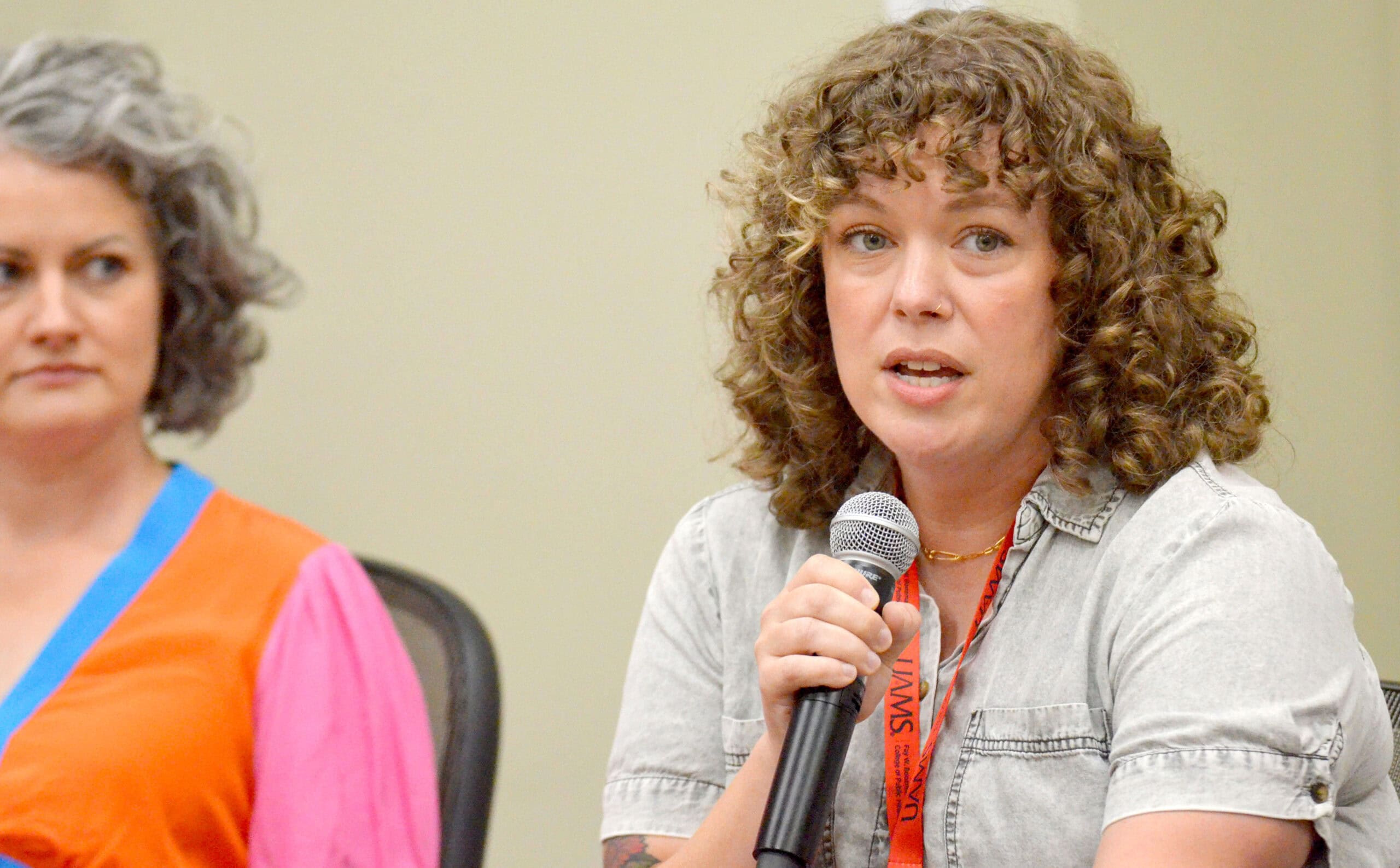Public Health Doctoral Student Sees Farmers’ Health Study Published
| Rachel Hale, M.A., a doctoral student in the University of Arkansas for Medical Sciences (UAMS) Fay W. Boozman College of Public Health, led a study surveying Arkansas small farmers to understand their climate change and health risk perceptions that International Journal of Environmental Research and Public Health has published.
“This experience is extremely valuable as a junior researcher and doctoral student,” she said. “It has further prepared me for larger grants and projects.
“It was exciting to go through the full process of applying for a grant, conducting research and publishing the findings to both the academic community and to the local community.”
Hale’s study, “Climate Change and Health Risk Perceptions of Arkansas Small Farmers through the Application of the Health Belief Model” is her first as lead investigator. Keneshia Bryant-Moore, Ph.D., RN, served as the faculty mentor on her study.
Hale, who’s also an instructor in the college’s Department of Environmental Health Sciences, chose to conduct the study due to the potential for increased adverse health outcomes associated with climate change faced by Arkansas’ small farmers.
Not only does climate change affect the physical health of farmers, but their emotional well-being also is impacted as they face economic hardships due to decreasing crop yields and workable hours. Research suggests that small farmers have more exposure to extreme weather events such as severe storms, flooding and drought than other members of Arkansas’ workforce.
“The higher exposure places their health at a greater risk,” Hale said. “To help us understand how to protect the health of small farmers, this project explored their beliefs and risk perceptions about how our changing climate may impact their health.”
The study found the study’s survey participants have protective factors from climate change impacting their health that include their income, education and health insurance. Additionally, 69% of the participants believe the climate is changing and getting warmer, and 58.3% believe people are responsible for climate change. The study revealed only 16.7% of the participants believe they have all the information necessary to protect their health from climate change.
Much to Hale’s delight, the research, and accompanying info, has made its way to the state’s small farmers community.
“In addition to my published article, I created a one-page infographic that has been shared via email and social media within the Arkansas small farming community,” she said.
Hale said she’s honored to have her first study as a lead investigator published. But she takes even more pride in knowing how the findings benefit small farmers, which means her study also benefits people in Arkansas — and beyond.
“In the U.S., small farmers are critical for providing access to a diverse and resilient food supply for local communities,” Hale said. “Small farms serve as centers for agricultural innovation, foster community relationships and promote agricultural practices that benefit both people and the environment. Improving and protecting the health of small farmers is vital for community and environmental health.”
